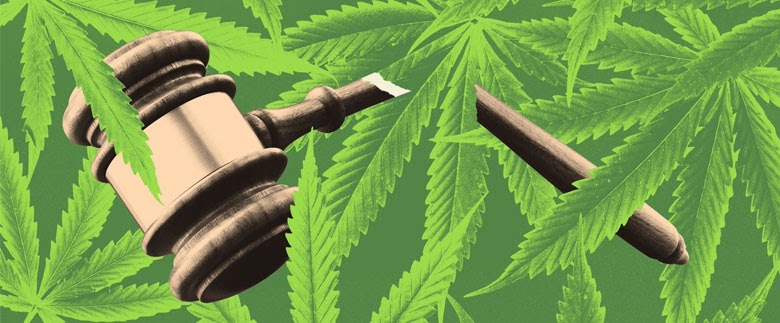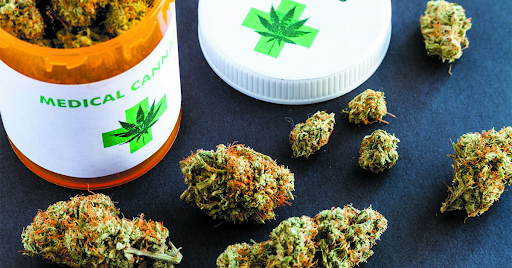The social ramification of Cannabis has been the topic of debate and discussion for decades now. While one section of the society finds relief in nature's gift, another shuns it into the category of drugs. Marijuana enjoyed legal status in the early 20th century, until racism, xenophobia, and a host of other reasons pushed it into the illegal corner. After decades of fight from a number of cannabis activists, we are seeing a gradual easing from the audience as well as legal authorities regarding the green herb. But as more states in the USA and countries around the world are looking at Medical Marijuana legalization, it has raised several concerns and questions regarding its impact on the crime rate. Let's see what the research and studies have to say about it.
The social outcomes of Marijuana Legalization have been the centre of debate for policymakers, the medical and the scientific community. Despite the long discussions and concerns, the USA was quick to Legalize Medical Cannabis in 20 different states, with recreational cannabis being legalized in Colorado and Washington. People believed that the open use of Weed would allow and justify drug-related behaviour, and also act as a gateway to harder drugs like cocaine, meth, etc. However, there is also the concern that even if medical marijuana legalization (MML) does not lead to a rise in drug usage, it could still increase the crime rate. The reason cited for the same stimulated from the fact that the newly opened dispensaries serve as a highly attractive target audience for the criminals with their repository of high-quality cannabis and a large amount of money. However, research from other sources had evidence pointing in the opposite direction.

Supporters of MML assert that allowing the legal sale of cannabis would dampen the crime rate as the illegal drug market would not survive. A paper from Haverford College. The Department of Economics studied how the size of the medical marijuana market affects crime rates. Using Medical Marijuana patient registration from 1995-2015 and the difference-in-differences approach, it was concluded that a per cent increase in medical marijuana registration leads to a 0.03% and 0.02% decrease in murder and robbery rates, respectively. Other types of crime remain unaffected. This study shows how the two main crimes related to the illegal drug trade significantly reduce when people are allowed to consume the herb on a measured basis.
Keeping in mind that we are exploring the entire spectrum of research and studies, there have been a few positive correlations between Cannabis use and Criminal Behaviour. Early studies compared the number of crimes committed by juveniles whose urine tested positive for marijuana and those committed by those who tested negative. It was settled that youths that tested positive for marijuana had a higher number of referrals to juvenile court for non-drug felonies than those testing negative for marijuana use.
In another study of New Zealand adolescents, it was concluded that marijuana dependence was related to a 280 per cent increase in the odds of violence. The positive correlation between Marijuana and Crime does present evidence that marijuana usage is minimally correlated with an increase in violent or aggressive behaviour. However, it remains doubtful whether these findings are a causal link between marijuana use and violence, or whether it is affected by an uncontrolled variable(s).

Talking about the negative correlation between Marijuana and Crime, most researchers have reported that the legalization of Medical Cannabis does not have any effect on violent crime. Most of the research regarding the relationship between marijuana and crime revealed that there was no evidence between cannabis use and non-drug arrest. The researchers argued that the relationship between marijuana use and crime appears to exist because of its illegality. This concludes that if the possession and sale of Marijuana were legal, the relationship between marijuana and crime would disappear.
According to another article by the Guardian, the study 'Is Legal Pot Crippling Mexican Drug Trafficking Organizations? The Effect of Medical Marijuana Laws on US Crime', violent crime fell by 13% on an average on the Mexican border. This is when the illicit drug trade is controlled by seven major cartels in Mexico, from where most of the marijuana consumed in the US originated from Mexico.
Another recent study published in the Journal of Drug Issues examined the before and after crime rate of the neighbouring states of Washington and Colorado (Legal Cannabis State). It was found that the adult-use cannabis law has actually reduced major crimes in nearby areas.
“We did not detect any increases in the rates of multiple types of crimes in border counties of the non legalized states bordering Colorado and Washington,” wrote the authors. In fact, the study also observed a substantial reduction in certain types of crimes, namely, property crime, larceny, and simple assault.
Gavrilova and his fellow researchers, Takuma Kamada and Floris Zoutman, took a look at the FBI's uniform crime reports and homicide records from 1994-2012. It was stated that among the border states, the impact of the law change was largest in California with a 15% decrease in violent crime. On the other hand, it was the weakest in Arizona, with a fall of 7%. The crimes most strongly affected were robbery (19% decrease) and murder (10% decrease). There was also a whopping 41% decreased in homicides specifically related to the drug trade.
“When the effect on crime is so significant, it’s obviously better to regulate marijuana and allow people to pay taxes on it rather than make it illegal,” Gavrilova said. “For me, it’s a no brainer that it should be legal and should be regulated, and the proceeds go to the Treasury.”
To sum it up, the relationship between medicinal marijuana and crime is confusing. However, there is a need for more evidence-based research and study to conclude the effect of Medical Cannabis Legalization on the Crime Rate.



